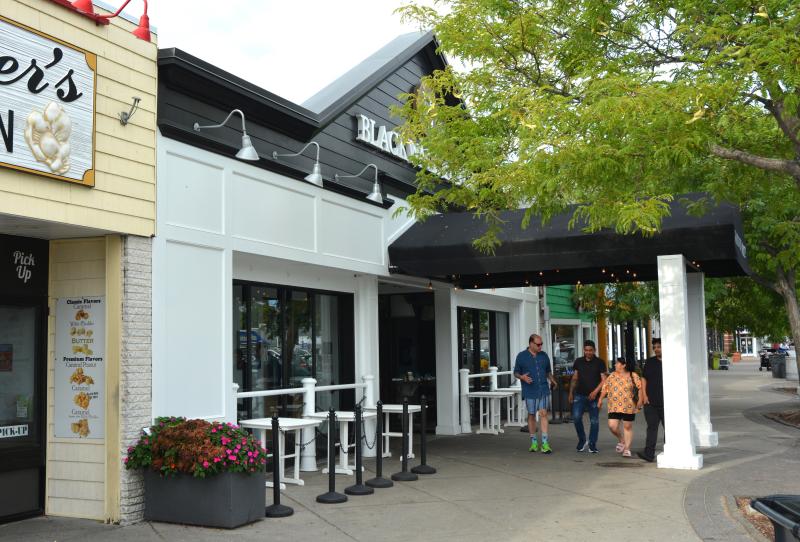Rehoboth moves forward on outdoor dining regs
For the past three summers, in response to the pandemic, Rehoboth Beach restaurants have been allowed tables on the city sidewalk in front of restaurants.
The first two summers, the city installed jersey barriers in parking spaces to allow for pedestrian access while restaurants took up most of the sidewalk space.
This past summer, those barriers were not installed. Instead, city officials created a policy allowing for dining on city sidewalks if certain pedestrian access requirements could be met. That policy expired Nov. 1. City commissioners have been working for months on codifying the policy so restaurants can continue to offer the dining option to customers.
During a commissioner meeting Nov. 18, Interim City Manager Evan Miller said the city is following an approach similar to one it took for wireless cellphone towers, which is to modify existing city code with definitions and processes and to create a design manual with examples for restaurants to follow. The city would assure a restaurant’s plan for outdoor dining on public space is in compliance with the design before seeking a supplemental permit of compliance from city commissioners, he said.
As proposed, there are no changes to the width of pedestrian access and service aisle requirements that were used under last year’s policy, but there could be changes to barrier construction and table placement – movie-style rope-and-pole barriers would no longer be allowed; tables would be allowed up against the barrier instead of just the restaurant’s facade.
The barriers need to be more substantial to prevent creep and people walking over them, said Mayor Stan Mills. There were some beautiful exteriors of barriers, he said.
As of now, there will be a nonrefundable fee of $150 for any new application or reapplication and an annual nonrefundable fee of $325. The city still has to do all the same work to assure compliance, said Mills.
As for violations, continued problems will lead to the revocation of the conditional permit. City Building Inspector Matt Janis said it’s typically a three-strikes-and-you're-out policy. It’s a warning, then a written notice, followed by revocation, he said.
Commissioner Patrick Gossett suggested adding a section that said if a restaurant receives a specific number of violations in a 12-month period, that restaurant would not be allowed to have a license the following year. If a business has its outdoor dining halted, it will try a little harder to comply, he said.
The city manager will have the right to suspend dining on public space for special events, infrastructure repairs or emergency situations.
Near the end of discussion, Mills reminded everyone the new code, when passed, could be revised next year. Next summer will be the test case and there will be a new city manager critiquing it, he said.
Mills wants to finish work on the regulations as soon as possible to give restaurants as much time as possible to apply for the supplemental permit of compliance. Commissioners are expected to resume discussion during a workshop Monday, Dec. 5.
Chris Flood has been working for the Cape Gazette since early 2014. He currently covers Rehoboth Beach and Henlopen Acres, but has also covered Dewey Beach and the state government. He covers environmental stories, business stories, random stories on subjects he finds interesting and has a column called ‘Choppin’ Wood’ that runs every other week. Additionally, Chris moonlights as the company’s circulation manager, which primarily means fixing boxes during daylight hours that are jammed with coins, but sometimes means delivering papers in the middle of the night. He’s a graduate of the University of Maine and the Landing School of Boat Building & Design.














































